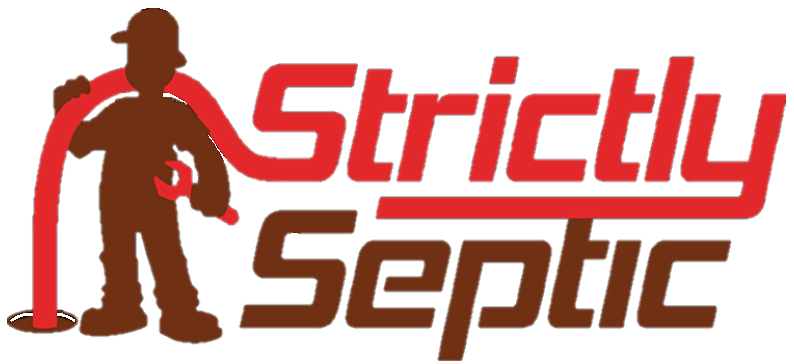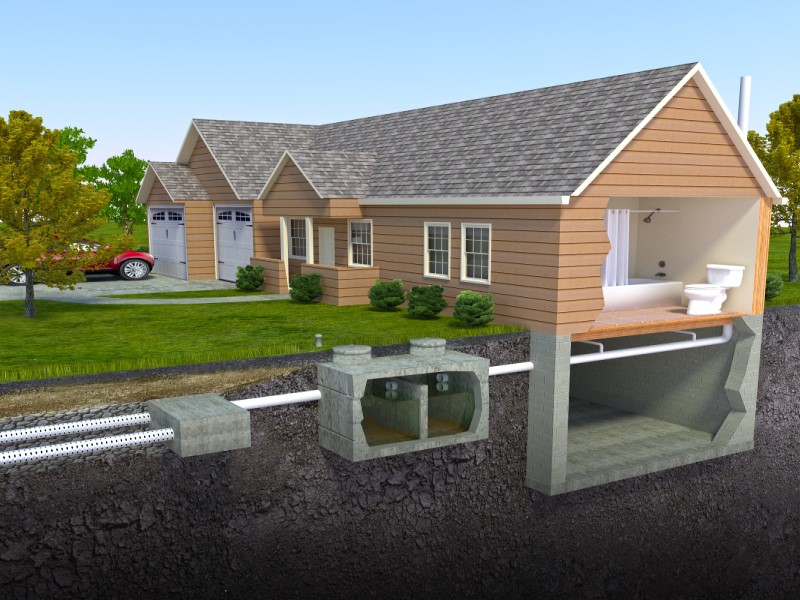All septic system types are crucial for homes and buildings that are not connected to a public sewage system. A septic system is a type of wastewater treatment system that uses a combination of natural processes to treat and dispose of sewage. There are different types of septic systems available, each with its pros and cons. We will explore and go over the different types of septic systems, their pros, or advantages, and their cons, or disadvantages. For even more information visit the Texas Commission On Environmental Quality and read their Basics For Septic Systems.
Conventional Septic System Type
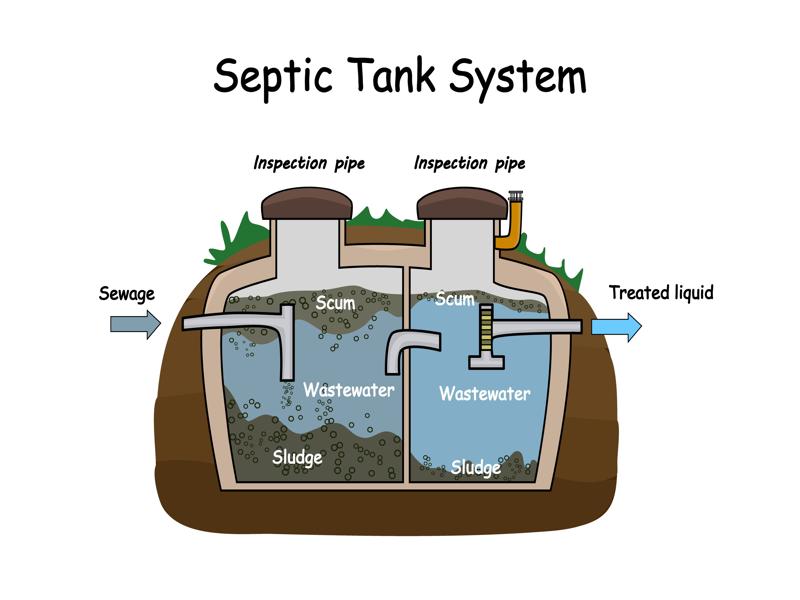
First off is the conventional septic system. A conventional septic system is the most common type of septic system. It consists of a septic tank, which is buried underground, and a drain field. The wastewater from the house flows into the septic tank, where it is separated into three layers: solid waste, liquid waste, and scum. The solid waste settles at the bottom of the tank, while the scum rises to the top. The liquid waste is then discharged into the drain field, where it is further treated by the soil.
Pros of this septic system type
One of the pros of a conventional septic system is that they are relatively simple and affordable to install. They are low-maintenance and require minimal upkeep. Additionally, it can be used in a variety of soil types. Moreover, they are effective at treating wastewater. Now there are some downsides to a conventional septic system.
Cons of conventional septic systems
The main drawback is that they can fail if they are not maintained properly, leading to expensive repairs or replacement. This type of septic system is not suitable for all soil types, particularly those with high water tables or poor drainage. Also, they require a large amount of space, making them unsuitable for small lots. Overall, conventional septic systems are a wise choice for most homeowners, and that is why they are the most popular of all the septic systems.
Aerobic Treatment Unit (ATU)
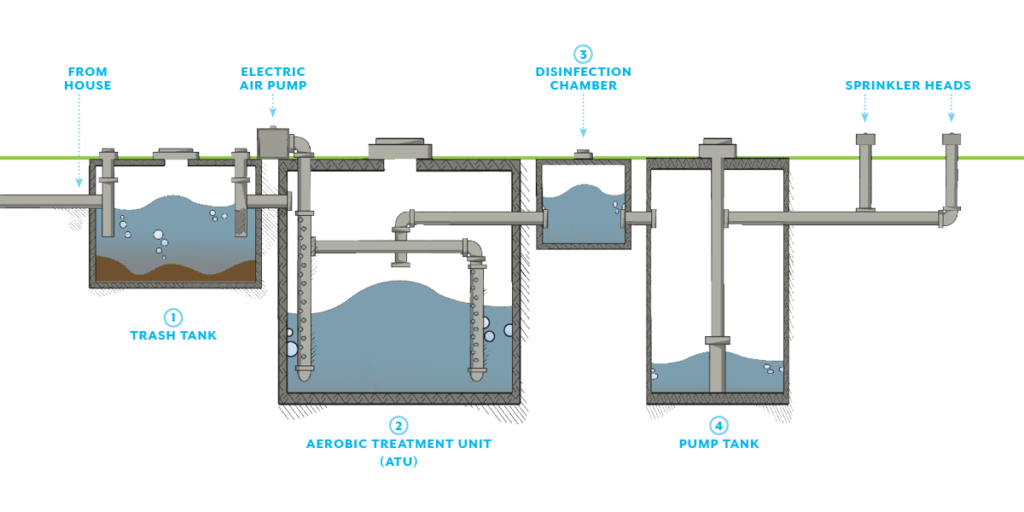
Another septic system types is the aerobic treatment unit, otherwise known as ATU. An aerobic treatment unit (ATU) is a type of septic system that uses oxygen to break down the wastewater. It is similar to a conventional septic system, but it uses an aerator to inject air into the septic tank, which promotes the growth of aerobic bacteria. This type of system is often used in areas where the soil is not suitable for a conventional septic system.
Pros
The pro for this type of system is that aerobic treatments units are effective at treating wastewater, producing a high-quality effluent. That is a fancy way of saying that the sewage water being discharged comes out much cleaner then in other septic systems. They are suitable for a variety of soil types, including those with poor drainage or high water tables. Furthermore, this type of system takes up less space than conventional septic systems. Moreover, they are relatively low-maintenance, which is a huge bonus to most homeowners.
Cons
The cons to aerobic treatment units start with the fact that ATUs are more expensive to install than conventional septic systems. They require electricity to operate the aerator, which can increase the utility bills. Additionally, these systems may produce a noise that can be very off-putting to some homeowners, depending on the type of aerator used.
Mound Septic System Type
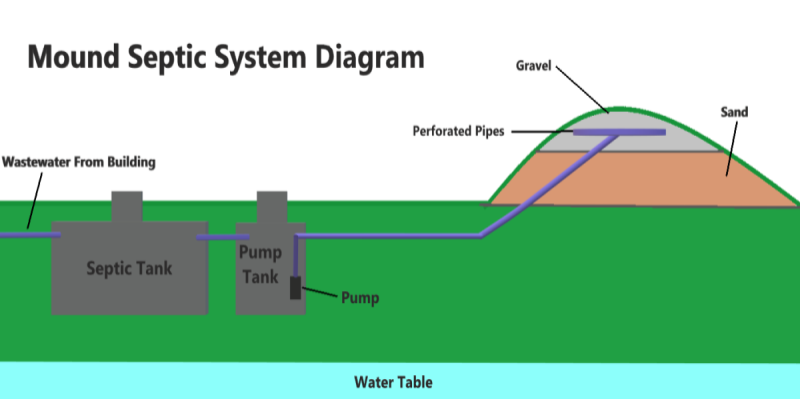
The third most common type of septic system found is the mound septic system. A mound septic system is a type of septic system that is designed for areas with poor soil drainage or a high water table. It consists of a septic tank and a raised bed of sand and gravel, known as a mound. The effluent from the septic tank is pumped up to the mound, where it is further treated by the soil and vegetation.
Pros of the Mound Septic System
The pros to mound septic systems are that they are effective at treating wastewater, especially in areas with inefficient soil drainage and land with a high water table. Furthermore, mound systems take up less space than conventional septic systems and are relatively low-maintenance.
Mound Septic Cons
The cons to mound systems are that they are more expensive to install than conventional septic systems. Moreover, they require a pump to lift the effluent up to the mound, which can increase the electricity bills. The mound can also be unsightly and may require additional landscaping to make it look more natural.
Drip Irrigation Septic
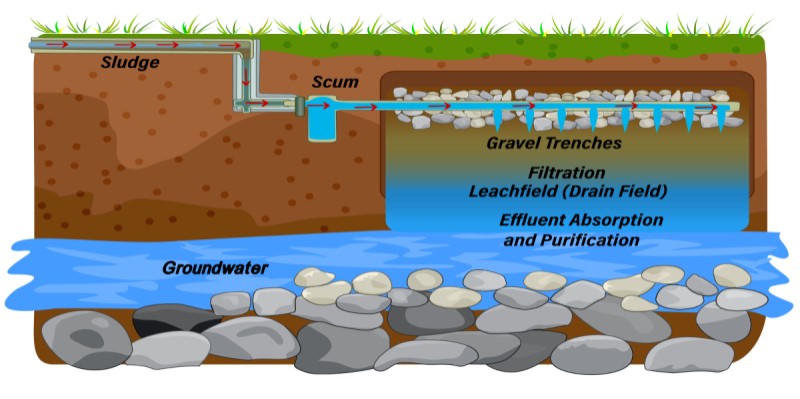
An alternative to all of these types of septic systems is a drip irrigation septic system, also known as a subsurface drip system. This septic system is a type of wastewater treatment system that utilizes a network of underground pipes to distribute treated effluent to a series of drip emitters. The system provides a range of benefits, but also has several drawbacks that must be taken into consideration.
Pros of a Drip Irrigation Septic Style System
One of the biggest advantages of a drip irrigation septic system is its efficiency in water usage. The system distributes wastewater directly to the roots of plants, minimizing water loss due to evaporation or runoff. This helps to conserve water, which is especially important in areas with water scarcity.
Environmentally friendly
Additionally, this type of system is environmentally friendly because it reduces the amount of wastewater discharged into the environment. The treated effluent is used to irrigate plants, which reduces the demand for freshwater resources and prevents pollution of surface and groundwater sources. It also boasts of lower energy consumption.
Less energy compared to traditional septic systems
Compared to traditional septic systems, a drip irrigation system requires much less energy to operate. The system does not require a pump to distribute wastewater, reducing energy consumption and maintenance costs. Furthermore, installing a drip irrigation septic system can increase the value of a property. The system is a selling point for eco-conscious buyers, and the added value can offset the cost of installation.
Last but not least, a drip irrigation septic system is relatively low maintenance compared to traditional septic systems. The system does not require a drain field, which eliminates the need for frequent pumping and maintenance.
However, there are some cons related to drip irrigation systems.
First of all, the initial cost of a drip irrigation septic system is much higher than that of a traditional septic system. The cost is largely due to the installation of underground pipes, drip emitters, and a control unit. Another downside is that the drip emitters in a drip irrigation system are susceptible to clogging from solids in the wastewater.
If the system is not maintained properly, the emitters can become clogged, reducing the system’s efficiency and lifespan. Moreover, the effectiveness of a drip irrigation septic system depends on the soil composition.
If the soil is too compact or contains too much clay, it can reduce the system’s efficiency and lifespan. Soil testing is required to ensure that the soil is suitable for a drip irrigation system. Additionally, a drip irrigation septic system is not suitable for large properties with high wastewater volumes. The system is designed for small to medium-sized properties with low to moderate wastewater flows.
There are also a few health risks associated with this type of system. If a drip irrigation septic system is not installed or maintained properly, it can pose health risks to the occupants of a property. The treated effluent can contain harmful bacteria, viruses, and pathogens that can cause illness if ingested or inhaled.
Which Septic System Best Suits Your Needs?
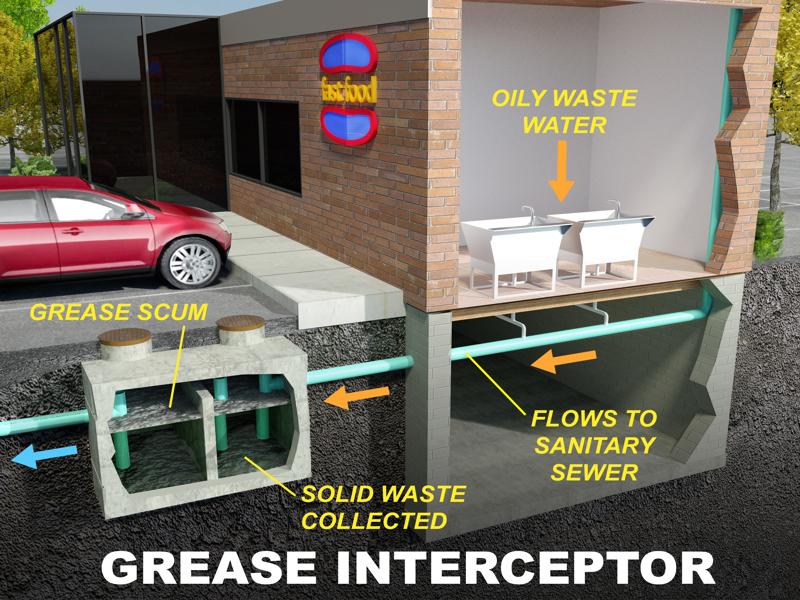
All in all, there are several different septic systems to choose from and each of them has their advantages and disadvantages. If you’re wondering which septic system best suits your needs make sure you research and call around to professional septic system installers before making a decision.
